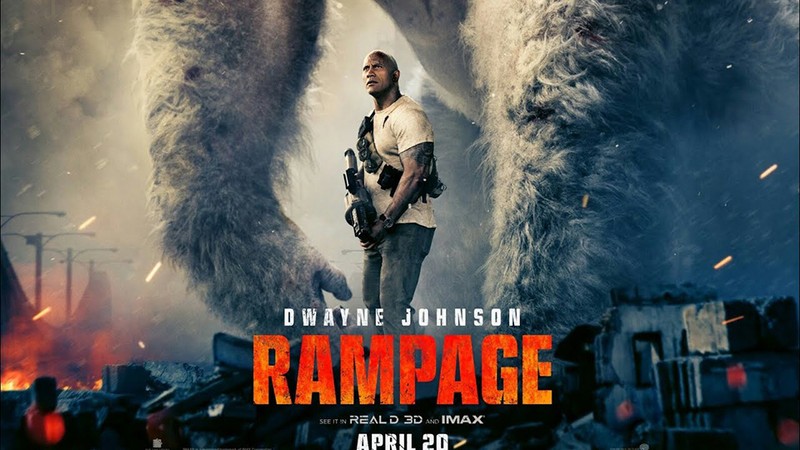Hollywood’s most recent video game adaption, “Rampage,” has been silenced at the box office by the success of “A Quiet Place” and marks yet another failed attempt to make video game movies the next blockbuster genre. “Rampage” is only the latest in a string of failed film adaptations of video games, which causes many to question their sustainability as a genre. As audiences are wondering when a video game movie will finally succeed, it should be noted that any new establishment of genre or style does not come without hiccups. Video game movies may be bad now, but after a few inevitable hits, they may be regarded on the same caliber as modern superhero films.
FAILED ATTEMPTS
There have really been no good video game movies. Video game to film adaptations began in the ‘90s, with painfully terrible films such as “Super Mario Bros.,” “Street Fighter” and “Mortal Kombat,” none of which demonstrate competent filmmaking or stand with true characters or even halfway decent plotlines. “Lara Croft: Tomb Raider” and “Resident Evil” were released in the early 2000s and quickly became the standard of video game movies––films with little substance or story. Fans embraced these films and guided them to box office success, but Hollywood quickly ruined these franchises with many terrible sequels.
Video games have evolved greatly since the ‘90s, immersing fans into large-scale worlds with film-caliber stories. This heightens fans’ excitement to see their favorite video games adapted to the big screen, but they are constantly let down by filmmakers’ inability to capture the scale of a game’s world due to deviation from the source material and inattentive storytelling. Recent adaptations such as “Hitman: Agent 47,” “Assassin’s Creed” and “Warcraft” may have found box office success overseas, but failed to capture the hearts of fans in America.
FUTURE SUCCESS
The current state of video games has a precedent. Superhero films faced similar problems during their genesis. They struggled to receive respect from audiences, who considered them among the bottom of the medium. Superhero films have only recently captivated fans and dominated box offices. Movies based on Marvel properties were first released in the 1940s, but they did not reach real success until the 2000s with films such as “X-Men” and “Spider-Man.” While films based on DC properties reached some success with “Superman” and “Batman” in the 1970s and 1980s, respectively, “Batman Begins” marked their beginning as gritty and realistic superhero films.
Video game films are merely facing the problem of being a newly established genre or style of film. Rather than focusing on storytelling, studios are leaning more on the familiarity or the gimmicks of the games, and proper storytelling gets lost in translation.
In a brilliant article for The Washington Post, Shelly Tan identifies that one of the problems with video game movies is that filmmakers focus too much on maintaining the unique aspects of the games, through which storytelling becomes muddled and confused.
“Hollywood keeps trapping itself in an either-or mentality that leads to horrible movies,” Tan said. “Balance is the key. Take a look at 2016’s ‘Assassin’s Creed,’ which stuck closely to many of the game’s concepts. The storyline was ineffective partly because, as a Forbes film review said, ‘so much of Assassin’s Creed’s storyline was created to solve very ‘‘video gamey’’ problems.”’
As Hollywood progresses, video game movies will progress, and filmmakers will figure out a way to strike a balance between expanding on the world of such beloved games and maintaining a proper story. With over 42 video game movies rumored to be in development, including adaptations of “Metal Gear Solid,” “The Division” and “Call of Duty,” Hollywood will certainly strike gold somewhere and find the proper template for telling video game movies, leading the way for future video game blockbusters. Just as superhero movies had trouble establishing themselves, video game movies are currently in a growing period and will eventually solidify themselves among other blockbuster genres.







